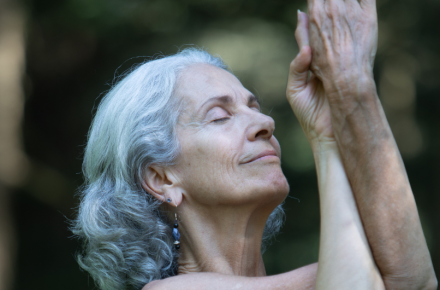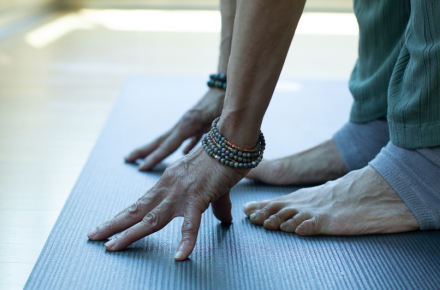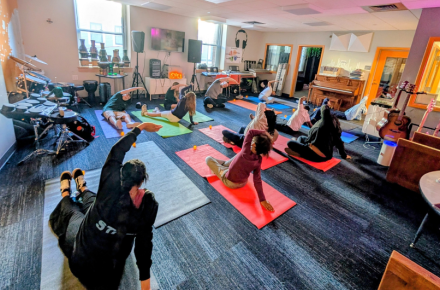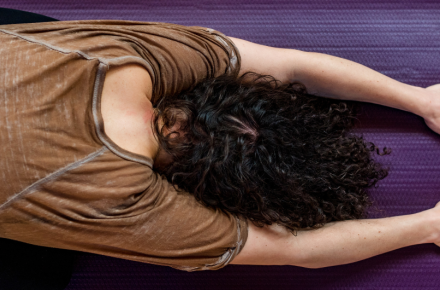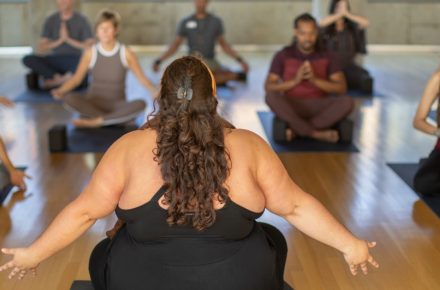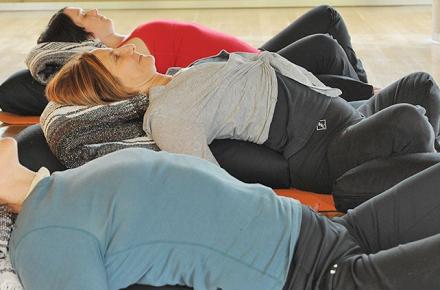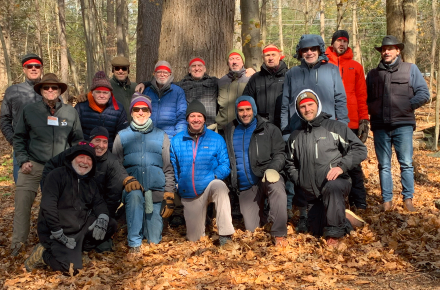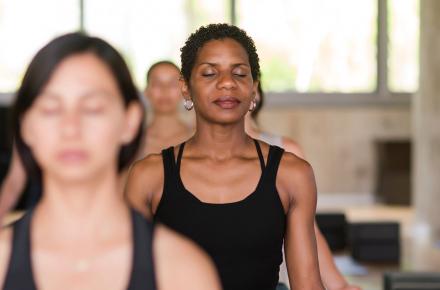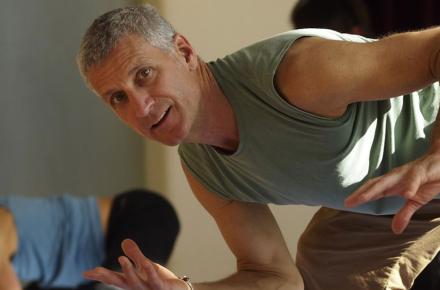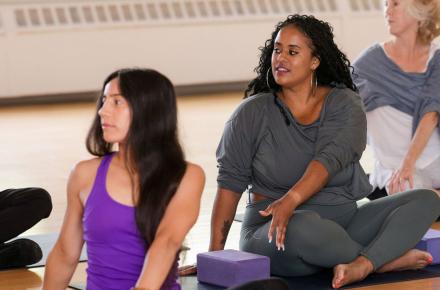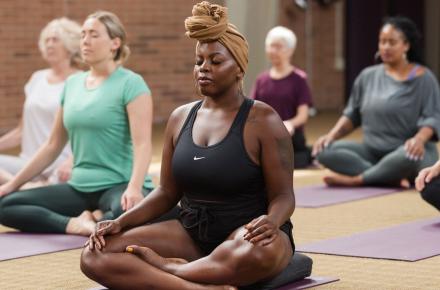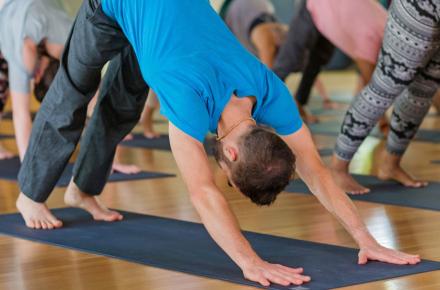How Yoga Can Help Us Live Longer and Better
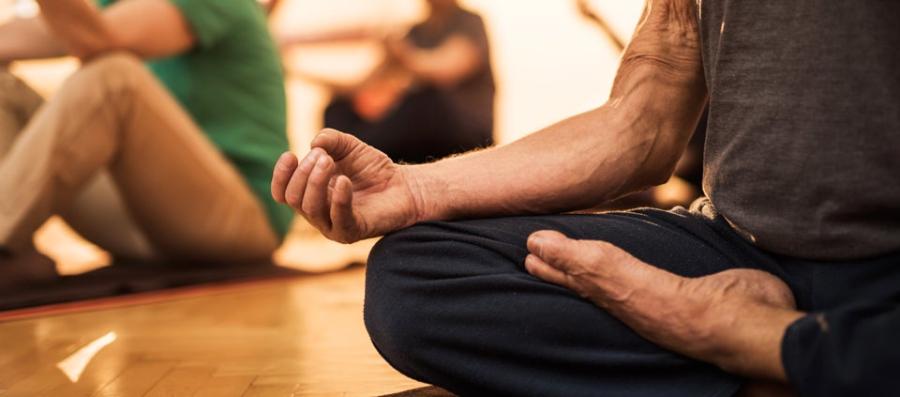
July 11, 2017
We do everything we can to embody youthfulness, potentially extend our lifespan, and fight aging. We eat superfoods packed with antioxidants, gulp down turmeric shots, and religiously drink our green juice. We use serums, creams, exfoliants, and anti-aging treatments to care for our skin. We practice cleanses and detoxes to purify our systems. And we do the New York Times crossword puzzle to keep our brains sharp. But there’s one activity that can support all of this, and more: yoga.
Recently, a pop-up conference in Brooklyn—Yoga & Science, The Emerging Science of Consciousness Regeneration, Health, and Longevity—united some of the top thinkers in the yoga and meditation research community. Among the luminaries were Kripalu Research Director Sat Bir S. Khalsa, Paul Morris, Sharath Jois, Eddie Stern, and other practitioners and researchers. Many topics were discussed, including the evolution of clinical trials and research in general, factors influencing such studies, and how yoga impacts specific health concerns.
Research is revealing that yoga and meditation don’t just help us relax or keep us flexible—these practices also influence memory, lifespan, immunity, neuroplasticity, and epigenetics.
“Lifestyle choices, such as practicing yoga and meditation, can impact wellness, immune function, and longevity,” said Sat Bir. Yoga increases the activity of the parasympathetic nervous system and reduces activity in the sympathetic (fight-or-flight) nervous system. This means that when we practice, we experience a reduction in cortisol (the stress hormone). The result: “Yoga and meditation can create change at a molecular level, in the cells of our body,” Sat Bir summarizes.
A recent study analyzed the impact of yoga and meditation on cellular aging in healthy individuals. “The results of this study highlight the positive impact of YMLI (yoga and meditation lifestyle intervention) on biomarkers of cellular aging and in promoting cellular longevity through changes in both cardinal and metabotrophic biomarkers,” said the researchers at the India Institute of Medical Sciences. The findings emphasize the significance of life choices in determining lifespan and overall wellness.
Another study found that yoga had a stronger impact on brain memory than puzzles or brain training exercises. The subjects were also better able to manage stress and minimize anxiety, factors known to influence aging. We often tend to compartmentalize our understanding of brain versus body, but this research indicates that the integration of mind-body movement and awareness can have a profound impact on our lives.
Another fascinating arm of research related to mind-body-spirit practices is the connection between yoga and gene expression. A recent study explored the relationship between meditation, stress responses, and our genetic composition. Results showed that meditation, practiced consistently, generates a measurable, physical impact on our gene activity. “People who practice simple meditation aren’t ‘just relaxing’ … Instead, they’re experiencing a specific genomic response that counteracts the harmful genomic effects of stress,” said lead researcher Herbert Benson. Hence, we can minimize the harmful effects of stress on mental health, and potentially increase physical well-being in the process.
While the science of yoga is relatively young, the findings are significantly positive when it comes to the overall health benefits, longevity, and the ability to modify genetic expression and neuroplasticity. In addition, studies have found that, regardless of age, what matters is how often you practice, not how seasoned you are. Therefore, it’s never too late to get started!





